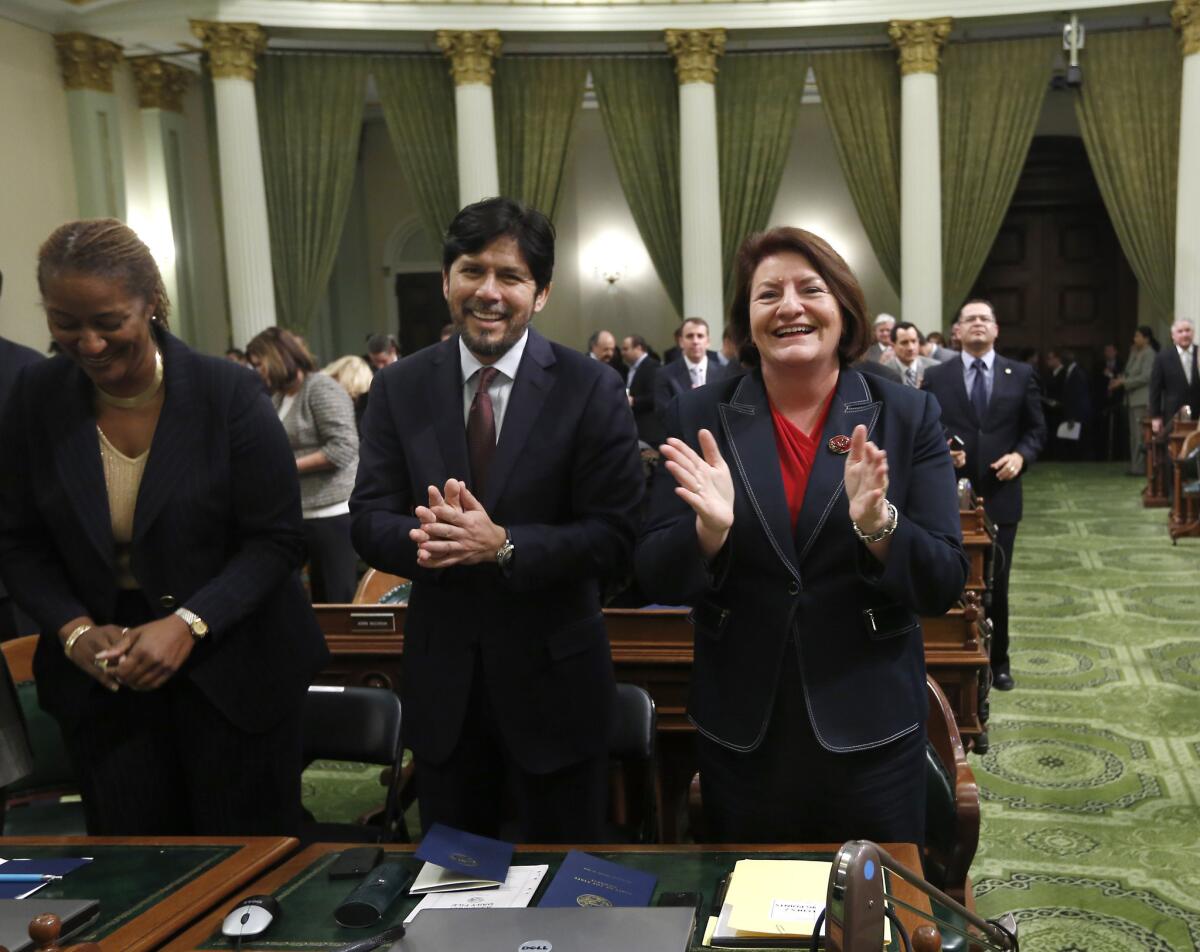Lawmakers nearing deal on California budget

State Sen. Kevin de Leon (D-Los Angeles) and Assembly Speaker
With the deadline to approve a new budget approaching, Democratic leaders in the Senate and the Assembly have reached a deal on a range of issues involving public healthcare, child care and university funding.
The compromises were vetted by the joint budget committee Tuesday, and a final vote in the Legislature is expected Monday. However, an agreement with Gov. Jerry Brown has yet to be reached, setting up a potential confrontation over the state’s finances.
As in previous years, the disagreement revolves around how much money is available for spending. The lawmakers’ budget plans are built with numbers from nonpartisan legislative analysts, whose revenue estimates are higher than the Brown administration’s.
After the Legislature passes the budget, the governor can still veto spending that exceeds his $115.3-billion general fund proposal.
Some of the lawmakers’ plans wouldn’t kick in until 2016, reducing their effect on the next budget but leading to higher costs in future years.
For example, rate increases for healthcare providers who treat Medi-Cal patients would be phased in, with dentists getting the earliest boost in July and other doctors receiving more money in April. That leaves $40 million in new costs in the next budget and about $130 million annually in the following years.
Lawmakers’ plans also include $40 million to provide healthcare to immigrant children who are in the country illegally, a pared-down version of an earlier proposal by Sen. Ricardo Lara (D-Bell Gardens).
Child care would get a $245-million boost in the budget, less than some lawmakers had originally proposed. The money would not be drawn from the state’s education funding formula, a step that had been opposed by the teachers union and other organizations.
Under a compromise reached between the Senate and the Assembly, lawmakers would keep the middle class scholarship, a program that Senate leader Kevin de León (D-Los Angeles) wanted to eliminate. However, some changes would be made, such as a four-year limit for assistance and an asset test to ensure the scholarships are not benefiting wealthy families.
Those changes, combined with lower-than-expected enrollment in the program, would free up an additional $70 million for the California State University system.
chris.megerian@latimes.com
Follow @chrismegerian for more updates from Sacramento
More to Read
Sign up for Essential California
The most important California stories and recommendations in your inbox every morning.
You may occasionally receive promotional content from the Los Angeles Times.











